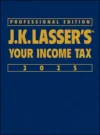No Exception from Early Distribution Penalty for Financial Hardship
Withdrawing funds in a qualified retirement plan or IRA before age 59-1/2 can result in a 10% early distribution penalty unless a special exception to the penalty applies. These exceptions include withdrawals on account of disability; separation from service at age 55 or older; payment of higher education costs, first-time home buying costs, or medical costs; or on account of divorce (certain exceptions apply only to qualified retirement plans or to IRAs).
Financial hardship
401(k) plans can allow participants to take hardship distributions without disqualifying the plan. The participant must show an immediate and heavy financial need that cannot be met without resources. Examples of an acceptable hardship include preventing eviction or mortgage foreclosure of a principal residence; buying a principal residence; or paying tuition, medical, or funeral expenses.
There is no exception from the 10% penalty for distributions taken on account of financial hardship. That's what one couple in a recent case learned when the wife tapped out her account in her qualified retirement plan to pay moving costs when the husband's job required them to relocate to another state. Since she was under age 59-1/2 at the time of the distribution, she owes a 10% penalty (in addition to paying regular income tax on the amount of the distribution).
New penalty exception
The 10% penalty is waived for withdrawals from qualified plans and IRAs by reservists called to active duty for over 180 days or an indefinite period. This rule had been scheduled to expire at the end of 2007, but the Heroes Earnings Assistance and Relief Tax Act of 2008 (which became law on June 17, 2008) makes this exception permanent.
Source: Carder, TC Summary Opinion 2008-82
Refundable tax credit
A credit that entitles you to a refund even if you owe no tax for the year.



